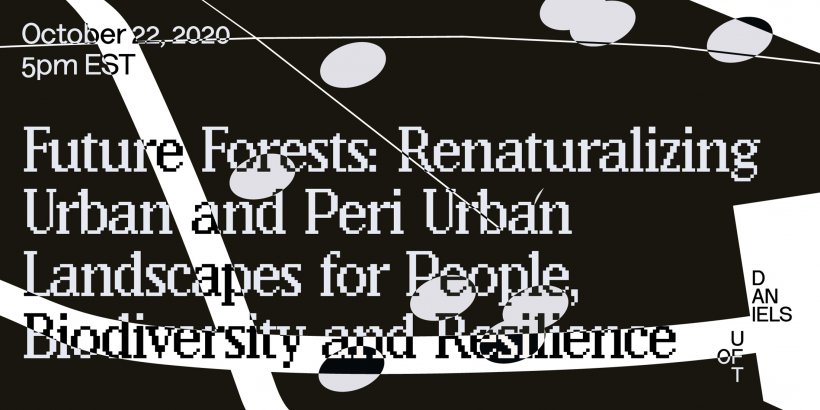
For almost two centuries, urbanization has been achieved by conquering land and using the natural environment as a disposable commodity. As a result, we have depleted our forests, wetlands, and soils. These effects have impacted the quality of life in urban areas, as well as the health of urban residents. And yet, the same pattern of development continues to be used, even as its negative consequences are amplified by climate change. Our forest conservation and restoration efforts, shaped by constant struggles against development, are reactive, opportunistic and ad-hoc rather than strategically planned.
In a world where biodiversity is at a tipping point, how can we conserve and restore forests within and around urban areas? This panel discussion will pose that question to a group of experts from the fields of forestry, urban studies, landscape architecture, and architecture.
Moderated by
Danijela Puric-Mladenovic (Daniels Faculty)
Speaker(s):
Simone Borelli holds a first degree in Forest Science from the Universitá della Tuscia, Italy, an M. Sc. in Watershed Management from the University of Arizona and Postgraduate Diploma in Public Management from the University of London. He has worked for the Food and Agriculture Organization of the UN (FAO) for over 20 years in different positions and is currently responsible for the Urban Forestry and Agroforestry programmes of the Forestry Division.
Liz O’Brien is Head of the Social and Economic Research Group at Forest Research. Her research explores well-being and the cultural ecosystem benefits of trees and woodlands including a strong focus on the health benefits of engagement with trees and woodlands – physical, mental and social. She was previously involved in two European COST Actions: 1) Forests and human health, 2) Urban forests and green infrastructure, as well as the UK National Ecosystem Assessment Project on shared, social and cultural values.
Fabiano Lemes de Oliveira, PhD, is an Associate Professor in Urbanism at the Department of Architecture and Urban Studies at Politecnico di Milano. Prof. Lemes joined Politecnico di Milano in 2019 after over 10 years working at the University of Portsmouth in the United Kingdom. His research lies at the intersection of urban and environmental planning, with a focus on the relationships between city and nature, and the roles of green space systems and planning models in city and regional planning.
Jana VanderGoot is a licensed architect, landscape designer, and an Associate Professor of Architecture at the University of Maryland School of Architecture, Planning and Preservation. Jana’s teaching, research and practice focus on urban ecological planning, non-toxic building processes and materials, and climate adaptation.
VanderGoot has led a number of collaborative community-based design studios that address these topics, most notably strategies for flooding and sea water rise in Salisbury, Md., later adopted as part of the city’s master plan. She is the founder of the Low Heat Research Collaborative, a partnership with BeckerLinn Design and the National Center for Smart Growth.